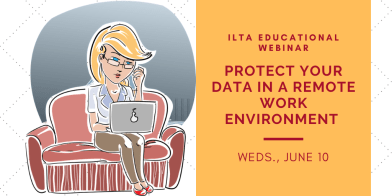 Followers of technology know that AI (Artificial Intelligence) and the invasion of the robots is a trending topic. One of the themes is that the robots are coming and they are going to take all of our jobs. Venture capitalist, Marc Andreessen, not a fan of the “sky is falling” thinking, tends to tweet humorous quips about the looming robot crisis.
Followers of technology know that AI (Artificial Intelligence) and the invasion of the robots is a trending topic. One of the themes is that the robots are coming and they are going to take all of our jobs. Venture capitalist, Marc Andreessen, not a fan of the “sky is falling” thinking, tends to tweet humorous quips about the looming robot crisis.
On March 6th, when the latest employment data were released, Andreessen tweeted the chart below with the comment, “The robots are really dropping the ball.”

A few days earlier I had attended a panel on “The Law Firm of the Future” sponsored by CodeX and the Palo Alto Area Bar Association. CodeX is a multidisciplinary laboratory operated by Stanford Law School and the Stanford CS Department.
The arc of the meeting was set by the first speaker, Vivek Wadhwa, who presented research on the results of IBM’s Watson AI Engine in diagnosing cancer. Watson’s successful diagnosis rate for lung cancer is 90 percent, compared to 50 percent for human doctors. Wadha’s position is that an AI engine can easily store the entirety of legal case data and can be trained to make legal decisions, perhaps to make even better decisions than humans, also known as lawyers. This is a challenging stance for many of us to grapple with today.
However, in the audience the General Counsel of a local university made the point that their university frequently hires outside counsel. He routinely inquires as to the likely outcome of the case and what will it cost. The answers which he gets are along the lines of, “my gut tells me X.” The GC made the point, “If Watson or AI can provide better answers to those questions, I’m all for it.”
Other panelists illustrated how their organizations combined the strengths of man and machine in order to practice law more efficiently and predictably.
Attorney Natalie Pierce of Littler Mendelson P.C. presented their CaseSmart litigation management and analytics solution. Littler specializes in employment and labor law. Built into CaseSmart is their data from tens of thousands of their cases. In essence, they have data pertaining to case type, jurisdiction, judge, and opposing counsel, therefore, they can provide the odds of outcome and cost of a pending case.
Litigator Ray Gallo, principal of Gallo LLP and Gallo Digital, showed how human skills plus technology can expand a practice. Gallo has won more than 85% of his cases which were brought to verdict, demonstrating exceptional skills. But one person does not scale. He developed a way to use internet technology to support class action and mass action suits. These particular suits would not have been economically viable without automation of data collection and client communication. In doing so, Galli has won judgements for many plaintiffs who would otherwise have been unrepresented.
Another panelist, Derek Bluford, is the President and CEO of QuickLegal, which is an online and yes, mobile app, legal advice service. QuickLegal connects clients with lawyers via audio and video chat. Service is immediate – Derek pointed out that if one is in a car wreck or arrested, one needs help then and there. On the other side of the coin, there are many attorneys who don’t want to be tied to a desk 50 hours a week. They want to have more freedom and flexibility. Therefore, QuickLegal is an efficient market for highly qualified professionals and clients.
When I engage with the law firm of the future, will I pick up an app and be interviewed by an operating system, who will then exchange data with the opposing party’s OS? Will the two systems then calculate the outcome based on precedence? Probably not in my lifetime. Certainly, however, we can already see the big gains to be made by Business Intelligence, software supported client communications, and mobile apps. The changes in legal are well underway.
Kudos to PAABA President, Roger Royse, for putting together a diverse and interesting panel at CodeX.
–Maureen Blando
I tweet at @mobilehelix
Like this:
Like Loading...







